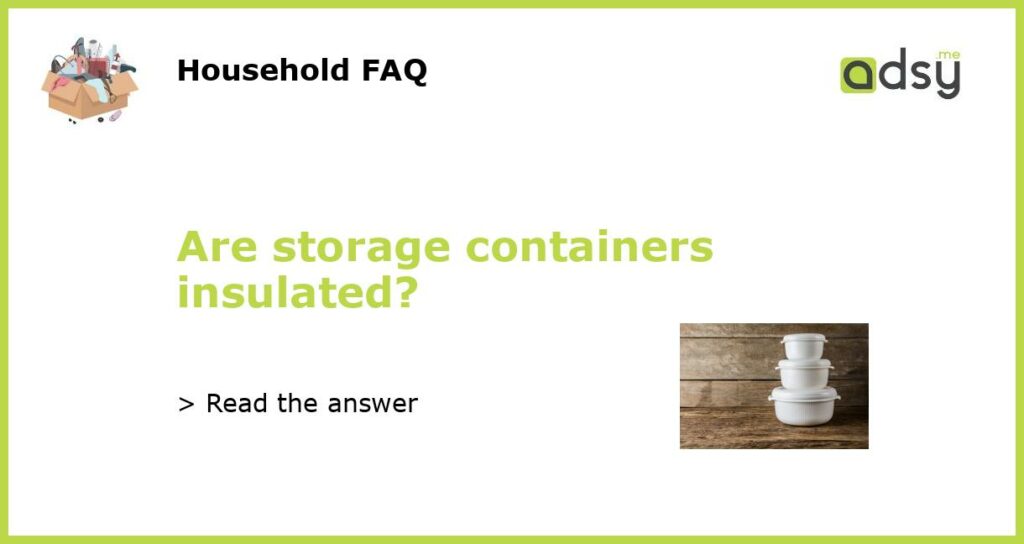Yes, storage containers can be insulated
Storage containers are commonly used for various purposes, such as storing personal items, excess inventory, or even as a temporary office space. One important consideration when using storage containers is whether or not they are insulated. Insulation plays a crucial role in maintaining the temperature inside the container and protecting the contents stored within.
Insulated storage containers provide temperature control
Insulated storage containers are designed to provide temperature control, which can be essential in certain situations. For example, if you are planning to store perishable items, such as food or medications, it is important to keep them at the proper temperature to prevent spoilage or degradation. Insulated storage containers can help maintain the desired temperature range, preventing any spoilage or damage to the stored items.
Types of insulation used in storage containers
There are different types of insulation materials that can be used in storage containers. One commonly used material is foam insulation. Foam insulation provides effective thermal insulation and is often used in refrigerated storage containers. Another option is fiberglass insulation, which can provide both thermal and acoustic insulation. Fiberglass insulation is commonly used in construction and can be an effective choice for insulating storage containers as well.
Benefits of insulated storage containers
Insulated storage containers offer several benefits compared to non-insulated containers. First and foremost, they provide better temperature control, ensuring that the stored items are kept at the desired temperature. This is particularly important for temperature-sensitive items. Additionally, insulated containers can help reduce condensation and moisture buildup inside the container. This can prevent damage to the stored items and maintain a more comfortable environment inside the container.
Insulated storage containers also offer improved energy efficiency. The insulation helps to minimize heat transfer, reducing the amount of energy required to maintain the desired temperature. This can result in cost savings, especially if the container is being used for a prolonged period of time. Insulated containers are also more versatile, as they can be used in various climates and weather conditions without compromising the integrity of the stored items.
Considerations when choosing an insulated storage container
When choosing an insulated storage container, there are a few key considerations to keep in mind. First, it is important to assess your specific storage needs and determine the appropriate insulation requirements. For example, if you are storing temperature-sensitive items, you may need a higher level of insulation compared to storing items that are less sensitive to temperature fluctuations.
Additionally, it is important to choose a reputable storage container provider that offers quality, well-insulated containers. Insulated storage containers should be properly sealed and have no gaps or openings that could compromise their insulating properties. It is also worth considering factors such as the size of the container, accessibility, and security features when choosing the right insulated storage container for your needs.
In conclusion, yes, storage containers can be insulated. Insulated storage containers offer temperature control, protect against moisture buildup, and provide improved energy efficiency. When choosing an insulated storage container, it is important to consider your specific needs and choose a reputable provider that offers quality containers. By investing in insulated storage containers, you can ensure the proper preservation and protection of your stored items.






